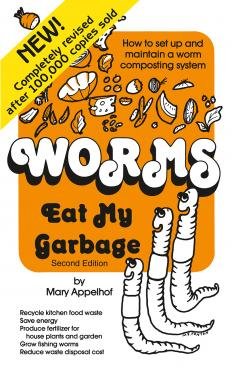

"Food is fabricated soil fertility." - William Albrecht
Sustainable gardening simply means that you don't use up resources faster than they can be replaced (such as: water, soil, labor, community support/services, etc.).
Organic gardening is growing without chemical fertilizers, naturally building the soil to support healthy plant life.
We believe the evidence supports that organic foods are higher in vitamins and minerals than conventional farm produced foods, because the soil has more diverse and healthy living organisms and trace minerals. A fine page to begin more research on this top can be located at Nutrition and Food Systems
At the heart of all organic growing is the art and science of fertilizing organically. There is no way to garden sustainably OR organically without a proper understanding of the soil in which your garden grows. When a human being lacks essential nutrients, their body weakens and suffers. A plant gains it's strength and nutritional edge from the soil in which it is fed. When your plants don't have nutritious food, you don't have nutritious food.
When the nutrients (plant food) in your soil plays out, your plants do too. One of the largest causes of modern disease is lack of proper nutrition. Just as it is for humans, so it is for food plants. When plants or humans don't receive proper organic nutrients they are unhealthy and fall pray to disease eaiser. One of the main causes of human disease is lack of an organic diet. And it's start is a lack of organic soil.
Building a nutrient rich organic soil is best done by ammending its shortcomings organically, naturally. Chemical ammendments add undesirable nitrates to your garden's soil. Ammonium nitrate is a leading source of environmental waste. They also leave chemical residues in your food. Adding this chemically manufactured, unbalanced stuff to your garden over and over will impair your vegetables and keep them from receiving the healthy nutrients they need to protect themselves from insect attacks and help the plant resist disease. Plants get stressed too and we know what stress does to human beings... plants are no different. They are better equipped to handle stress when they are strong from receiving the proper food they need.
Hormones in milk, food poisoning, mad cow disease, antibiotic resistant bacteria in meat - what has happened to our food? And to make matters worse, the United States is now the fattest nation in the world.
Garden Simply is also a website designed to answer the questions that arise to issues surrounding today´s agricultural system and what is happening with our food. Read here if you are more interested in what is happening to our meat supply.
Our goal is to help you understand the issues, offer suggestions on what you can do, direct you to more in-depth information, and introduce you to the exciting and hugely popular sustainable organic gardening food movement exploding around the world.
| You can increase the amount of organic matter in your soil by adding compost, aged animal manures,
green manures (cover crops), mulches or peat moss. Because most soil life and plant roots are located
in the top 6 inches of soil, concentrate on this upper layer. |
|
| That you can restore weak plants to robust health so they can resist insect attack? The best defense
against insect attack are preventative measures. Don't let plants get stressed out. Don't let them be too wet,
too dry or too hot or too shaded. Design a diverse garden, so that pests of a particular plant won't
decimate an entire section of the garden. Rotate your plant locations within the garden.
Organic methods will help your food taste better and store longer. |
|
| Healthy soil nurtures healthy plants which grow better, taste better, store longer and
have increased resistance to the stresses caused by heat, cold, drought, pests, diseases, rapid
growth, etc. Fertile soil is not only the first step for increasing yields and quality but also for
natural pest control and season extending. |
Rather than feeling hopeless over the problems with our food, Garden Simply has been created to reveal realities and help our readers magnify the possibilities of this growing healthy organic movement. After learning about the problems we are all confronted with, you will be introduced to organizations, people and programs that are changing the way we think about food. But HERE, we'll be teaching you methods and organic sustainable gardening tips to teach you how to raise your own healthy food!
We are at a threshold of growth in the shift toward sustainable food systems - we hope you will find the gardening resources here to guide your involvement. Together, we can create healthy compost rich soil, healthy organic food, healthy people, healthy communities and a healthy planet, for ourselves, our children and the generations to come. Join us as we discover new ways to eat healthy, garden smart, and enjoy food whose source we know! Raised the sustainable, organic way!
Never underestimate the value of what you do.
Life is short,



 "Beautifully illustrated and practical Are you ready to take your garden from good to great?
Learn how to build your soil...and more!
"Beautifully illustrated and practical Are you ready to take your garden from good to great?
Learn how to build your soil...and more!

The book that started a backyard worm revolution! With more than 150,000 copies sold, this is the bestselling and remains the definitive guide to vermicomposting--a process using red worms to recycle human food waste into nutrient-rich fertilizer for plants. Author Mary Appelhof provides complete illustrated instructions on setting up and maintaining small-scale worm composting systems. Read More...